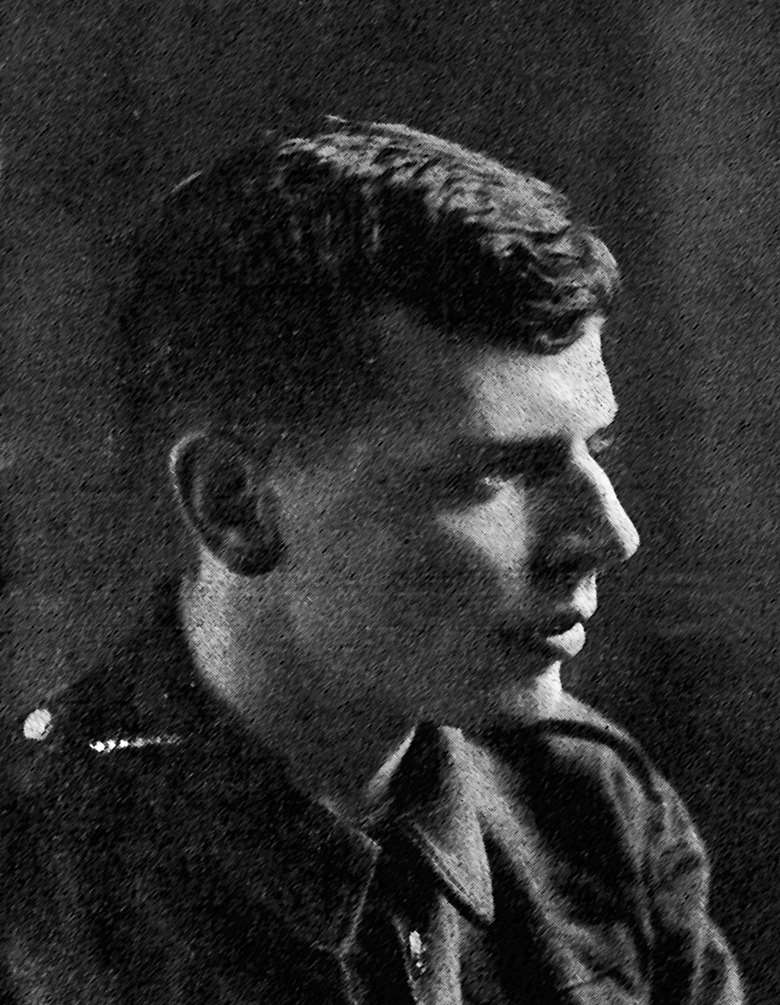Unmouthed – the asylum songs and poems of Ivor Gurney
Kate Kennedy
Tuesday, June 15, 2021
A new BBC programme explores the hundreds of works Gurney produced - but few have heard - during his 15 years in an asylum

Ivor Gurney (1890- 1937), First World War poet and composer of songs including the immortal ‘Sleep’, is loved by music and poetry enthusiasts alike, but his considerable reputation stands on only a fraction of his work: the majority is yet to be published. Only four years after the guns on the Western Front fell silent, just when he could look forward to taking his place in literary and musical London once more, he was locked up against his will in mental hospitals. He spent the remaining 15 years of his life incarcerated, but still writing and composing. He died of tuberculosis in the City of London Mental Hospital, emaciated and alone, at Christmas in 1937.
The asylum was a disaster for a man who lived to tramp freely over the meadows and hillsides of his native Gloucestershire, and who was driven by the knowledge that he was a great talent, with something unique and valuable to offer. And yet, out of those 15 years of silence (as it appeared to the outside world) came a terrible and hard-won opportunity. He wrote more within the asylum than many poets or composers write in a lifetime. Despite hardly being published, or performed, he kept writing, often in a white heat of creativity, and produced hundreds of poems, and reams of songs, string quartets and piano works.
Locked in the City of London Mental Hospital he could lose himself in his imagination, dwelling in the past, drawing on his wartime experiences and his memories of Gloucestershire for inspiration. By doing so, he could try to resist the madness that threatened him. He could offer some resistance to anonymity by examining and re-shaping his memories into some of the most fascinating, challenging and strangely exquisite poetry and music of his career. The vast majority of the asylum music and poetry has not yet been made publicly available, and has been heard or read by only a few. Some manuscripts are lost, or destroyed, but the many manuscripts that remain are a treasure trove, tucked away in boxes in an archive in Gloucester.
During the course of researching and writing the biography Dweller in Shadows: A Life of Ivor Gurney, I spent many years looking at this material, trying to find a way of contextualising it against the backdrop of his life in the asylum. In order to draw conclusions about this all-but-forgotten body of work, it’s important to understand what impelled him to keep writing, even when the world had, ostensibly, forgotten him. Every biographer will argue that context is all, but in Gurney’s case, when the life was so extreme, with the majority of his work written either in trenches or on a locked ward, it is all the more essential to understand what it was he was writing about, or writing to resist. Was the asylum, as Gurney’s friends seemed to think, a hell on earth? Or was it, as the asylum’s archivist presents it, a trailblazing, compassionate institution? These are questions I grappled with during the writing of the book, trawling archives, patient accounts, newspapers and medical journals for details that would illuminate his years there.

Kate Kennedy, standing at the front entrance to the former Stonehouse Hospital, in Kent
It is a ticklish business trying to pin Gurney down in the vast morass of information that I uncovered about the asylum and life within it. I found myself returning, again and again, to what Gurney himself wrote, as my touchstone for reality. But the difficulty with that is, that whereas Gurney writes in meticulously detail about life in the trenches, from the smell of cooking bacon to the rows of cabbages growing in the fields near Ypres, he refuses to go into any detail about anything to do with the asylum (an intriguing fact in itself).
So, I decided to take a handful of these extraordinary, puzzling and moving manuscripts to people I thought might be able to shed some light on them. A poet, medical historians, musicians and archivists, to see what they make of them. The result is Unmouthed – a BBC Radio 3 Sunday Feature documentary exploring Gurney’s life in the asylum, and his unpublished music and poetry, to be broadcast at 18.45 (British Summer Time) on Sunday June 20.
Gurney was once described during his lifetime as ‘the best of the young men below the horizon’. I hope, as the extent of his work emerges, that he too will finally take his place, above that horizon, as one of the great voices in British music and literature.
Sunday Feature: Unmouthed will be broadcast on BBC Radio 3, on Sunday June 20, 18.45pm and available on BBC Sounds afterwards: click here for details.
Kate Kennedy is the author of Dweller in Shadows – A Life of Ivor Gurney, published today by Princeton University Press today.











